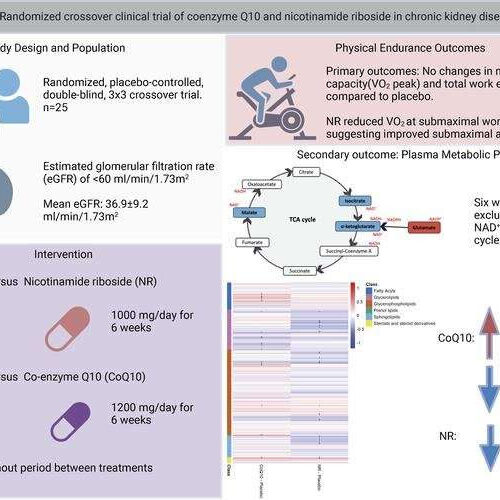by Liam Connolly, UC Davis Graphical abstract. Credit: JCI Insight (2023). DOI: 10.1172/jci.insight.167274 Nephrology researchers at UC Davis Health are shining a light on chronic kidney disease (CKD) as they investigate treatment options for impaired physical performance and exercise intolerance in chronic kidney disease patients. Led by Baback Roshanravan, associate professor of medicine and the Paul F. Gulyassy...
Tag: <span>nephrology</span>
SGLT2 inhibitors can slow progression of chronic kidney disease
Two randomized controlled studies [1, 2] show: SGLT2 inhibitors can slow CKD progression in all patients, not only in patients with diabetes 850 million people worldwide are affected by chronic kidney disease (CKD) – a worrying figure, and one that continues to rise. Treatment options for patients with CKD are multiple and often determined by...
Kidneys deteriorate with age, regardless of health
An international study that has been carried out on nearly 3000 people in Norway, Germany, and Iceland, shows that our kidney function deteriorates with age, even if we do not have any other diseases. The results from the study have recently been published in the reputable journal for kidney diseases, Journal of the American Society...
Kidneys and blood pressure connection
Posted by Kathleen Hoffman on Mar 31, 2019 in Blog It doesn’t seem possible that high blood pressure numbers can damage kidneys. But the way kidneys work can give you an understanding of the reason. Below is an infographic explaining the important filtration parts of the kidneys–nephrons. In the kidneys, the delicate structures called nephrons are filtering wonders. The blood moves into...
Researchers discover kidney disease gene affects more populations than previously thought
Until now, studies on the APOL1 gene have primarily focused on African and African American populations THE MOUNT SINAI HOSPITAL / MOUNT SINAI SCHOOL OF MEDICINE New York, NY (December 27, 2018) — In the largest population genomics investigation to date, a team of researchers at the Icahn School of Medicine at Mount Sinai, Stanford University, and the...
Study finds a novel and more practical way to measure kidney function
Researchers working on a study to improve kidney function measurements have found a way to provide more accurate readings. Using an injectable biomarker, physicians were able to read the actual working capacity of the kidney in a clinical setting in half the time it used to take. Currently, physicians rely on estimated kidney function (or estimated glomerular filtration rate)...


